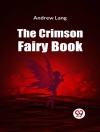In ‘Goethe: Novels & Novellas, ‘ readers are offered a rich tapestry of human emotion and existential inquiry, beautifully articulated through the lens of 18th and early 19th-century thought. This collection showcases Goethe’s mastery of narrative form, blending lyrical prose with profound philosophical reflections. His works, often situated within the Sturm und Drang movement, reflect his deep engagement with themes of passion, nature, and the complexities of the human experience, particularly in masterpieces such as ‘The Sorrows of Young Werther’ and ‘Wilhelm Meister’s Apprenticeship.’ The text’s stylistic nuances convey the tension between enlightenment rationality and romantic fervor, inviting readers into a world where individuality is both celebrated and scrutinized. Johann Wolfgang von Goethe, a polymath and cultural titan, had a profound impact on literature, philosophy, and science. His diverse experiences, from a privileged upbringing to his extensive travels and involvement in the Weimar Court, enriched his insight into human nature and society. Goethe’s deep existential ponderings and appreciation for the arts catalyzed his literary exploration, reflected in the emotional depth and intellectual richness of his narratives. This anthology is essential for both scholars and casual readers alike, providing a gateway to Goethe’s intricate world. It invites engagement with the questions of existence and identity that resonate across time, making each story relevant to contemporary discourse. Delve into this timeless collection and experience firsthand the genius of a true literary master.
Over de auteur
Johann Wolfgang von Goethe (1749–1832) stands as a towering figure in Western literature. A versatile German poet, playwright, novelist, scientist, and statesman, his literary breadth is best showcased in his magnum opus, ‘Faust, ‘ a two-part drama that remains a defining work in the canon of world literature. However, Goethe’s prowess extended beyond this grandiose tragedy. In his collection ‘Goethe: Novels & Novellas’, one finds a compendium of his narrative skill, capturing the author’s exploration into the psychological depth and moral questioning that characterizes his prose works. Goethe’s seminal ‘The Sorrows of Young Werther’ (1774), a novel that vitalized the Sturm und Drang literary movement, also unabashedly delves into the emotional and tumultuous inner life of its protagonist, setting a precedent for the Romantic literary movement that followed. Not confined to literary art, his interests spanned to science, where his work on color theory in ‘Theory of Colours’ and contributions to plant morphology in ‘Metamorphosis of Plants’ signaled his engagement with the natural sciences. Scholarly works on Goethe’s literary style note his synthesis of classical and innovative methods, his balance of form and profundity, and his influence on later generations of writers. Indeed, Goethe’s works laid intellectual foundations that resonate in the wide span of humanities, reflecting an unmatched scope in the narrative exploration of human experience.












